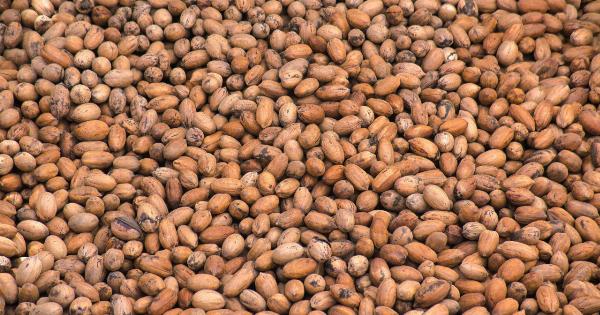Dialysis is a process that helps remove excess fluids and waste products from the blood. It is an important procedure that helps maintain the body’s balance and overall health. However, it can also affect your diet and nutritional needs.
A proper diet during dialysis can help maintain good health and wellness. Here are some tips on how to maintain a healthy diet during dialysis.
1. Control Your Sodium Intake
One of the most important aspects of maintaining a healthy diet during dialysis is controlling your sodium intake. Sodium is a mineral that is naturally present in foods and is also added during cooking or processing.
A diet high in sodium can lead to high blood pressure, swelling, and fluid retention.
To control your sodium intake, avoid processed foods, canned foods, and fast food. Instead, try to cook using fresh and natural ingredients. Use herbs and spices to flavor your food instead of salt.
Read labels carefully and look for products with low sodium or no sodium added. Lastly, limit your intake of cheese, cured meats, and other salty snacks.
2. Increase Your Protein Intake
Protein is an essential nutrient that helps the body build and repair tissues. During dialysis, protein is lost from the blood, and it is important to increase your protein intake to maintain good health.
However, some dialysis patients may have restrictions on their protein intake, so it is important to consult with your doctor about your specific needs.
Good sources of protein include lean meats, poultry, fish, eggs, dairy products, beans, and legumes. You can also try plant-based proteins such as tofu, tempeh, and nuts and seeds.
Spread your protein intake throughout the day to optimize absorption and maintain steady energy levels.
3. Monitor Your Phosphorus and Potassium Intake
During dialysis, phosphorus and potassium levels in the blood can become imbalanced. Phosphorus is a mineral that is essential for bone health, but excess levels can cause itching, joint pain, and calcification of blood vessels.
Potassium is a mineral involved in nerve and muscle function, but high levels can cause irregular heart rhythms and other complications.
To monitor your phosphorus and potassium intake, avoid foods that are high in these minerals. Some examples of high-phosphorus foods include dairy products, nuts, seeds, and processed meats.
Some examples of high-potassium foods include bananas, spinach, avocados, and tomatoes. Consult with your doctor or a dietitian for specific recommendations on your phosphorus and potassium intake.
4. Stay Hydrated
Dialysis patients need to be mindful of their fluid intake. Drinking too much fluid can lead to swelling and fluid retention, while drinking too little can lead to dehydration and fatigue.
It is important to maintain a healthy balance of fluid intake, typically between 1 and 1.5 liters per day.
To stay hydrated, drink water and other fluids throughout the day. Avoid drinking too much liquid at once, especially before and after dialysis. Limit your intake of caffeinated and alcoholic beverages, which can dehydrate the body.
Consult with your doctor for specific recommendations on fluid intake.
5. Choose Healthy Fats
Fats are an important part of a healthy diet, but it is important to choose healthy fats that promote heart health and overall wellness.
During dialysis, it is recommended to limit your intake of saturated and trans fats, which can raise cholesterol levels and increase the risk of heart disease.
Instead, choose healthy fats such as monounsaturated and polyunsaturated fats. Good sources include olive oil, avocado, nuts, and seeds. Omega-3 fatty acids, found in fatty fish such as salmon and tuna, can also provide heart-healthy benefits.
Moreover, look for foods that are low in fat or fat-free. Read labels carefully and look for products that contain healthy fats.
6. Take Nutritional Supplements If Needed
In some cases, dialysis patients may need to take nutritional supplements to meet their specific nutritional needs. For example, some patients may need to take vitamin D or iron supplements to maintain good bone health and prevent anemia.
However, it is important to consult with your healthcare team before taking any supplements. Some supplements can interact with medications or may not be appropriate for your specific health needs.
Work with your doctor or dietitian to determine if you need any supplements and which ones are safe and effective for you.
7. Stay Active
Physical activity is an important part of overall health and wellness, especially for dialysis patients. Regular exercise can improve cardiovascular health, maintain muscle mass and strength, and promote mental health and wellbeing.
However, it is important to consult with your doctor before starting any new exercise program. Some dialysis patients may have restrictions on their physical activity, such as limited endurance or low blood pressure.
Work with your healthcare team to determine a safe and effective exercise regimen and incorporate physical activity into your daily routine.
Conclusion
Maintaining a healthy diet during dialysis is crucial for good health and wellness.
By controlling your sodium intake, increasing protein, monitoring phosphorus and potassium levels, staying hydrated, choosing healthy fats, taking nutritional supplements if needed, and staying physically active, you can optimize your nutrition and maintain overall health. Work with your healthcare team to determine your specific dietary needs and make the necessary changes to support your health and wellbeing.





























